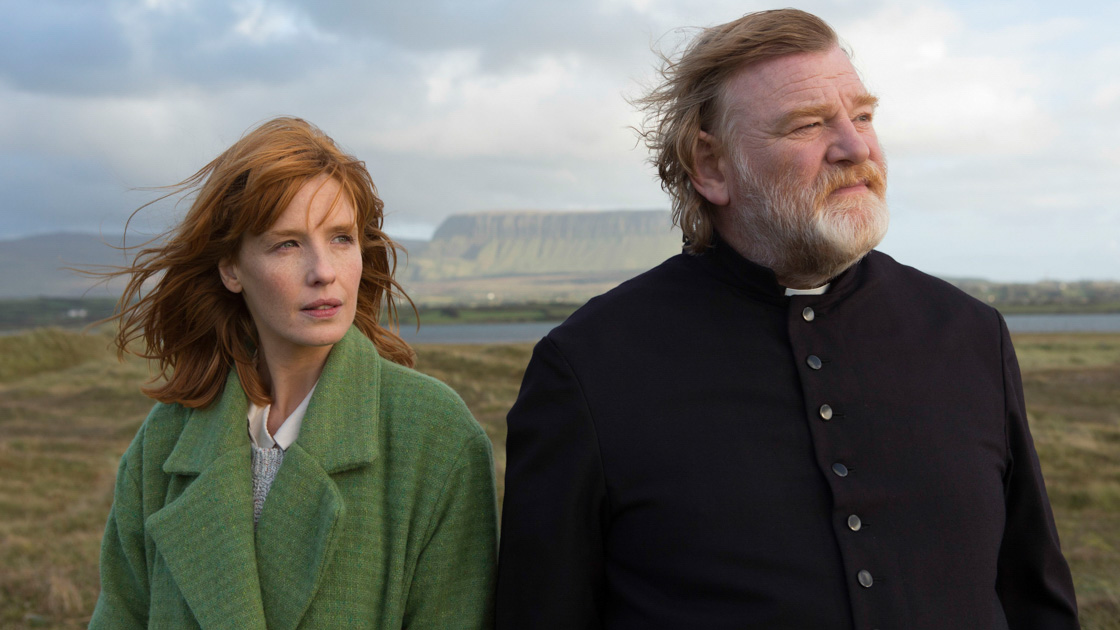Our Sundance Film Festival coverage continues with Michael Cusumano on "Calvary".

John Michael McDonagh’s Calvary gives the audience ample time to consider the screen presence of Brendan Gleeson. He is an invaluable actor; able to convey complete integrity side-by-side with a world-weariness that suggests nothing anyone says could possibly shock him. It’s a quality Calvary puts to good use. In its opening scene, Gleeson, playing small town Irish priest Father James, is taking confession when the man on the other side of the screen informs him that he spent years being abused by a Catholic priest and that he intends to murder Gleeson as symbolic punishment for the crimes of the Church. [more...]
Gleeson takes it in stride. When the man asks if he has any thoughts about the idea, Gleeson responds that he doesn’t, but he might, given some time. The voice on the other side of the screen obliges, scheduling the murder for a week hence. Calvary is the story of that week.
We know pretty much everything we need to know about Father James by the fact that not only does he not report the crime to the police despite the fact that such a threat falls outside the sanctity of the confessional, but he also doesn’t confront his potential killer before the agreed upon time, even though he surely knows exactly who it was in the confessional. Father James simply goes on doing what he always does: trying to help people, being a sympathetic ear, and generally attempting to do what good he can.
There are times during Calvary when it feels like the whole film will may collapse under the weight of its symbolism. The horrible gravity of the Church’s sins hangs over the film like the town's gray, overcast skies. The townspeople have largely turned against the church and regard Father James as an obsolete joke, never missing an opportunity to taunt him and his beliefs. It’s no coincidence that even Father James’ own child (Kelly Reilly, quite good) feels abandoned by him.
That Calvary doesn’t get bogged down with the meaning of it all is a testament McDonagh’s screenplay, which is too idiosyncratic to function as simple allegory. The dialogue between Gleeson and the townspeople addresses big ideas about morality and belief, but it does so by circling around them and getting sidetracked on tangents and cul-de-sacs of black comedy. That any one of the men he interacts with could be his promised murderer adds a peculiar level of tension to the interactions.
The final showdown between the priest and his potential killer is a hell of a scene, especially considering it maintains a glimmer of the film’s wry sense of humor in this most serious of moments. (I wouldn’t dream of giving away the identity of the killer but it should be noted that the performer does strong, moving work.) Between this and the charming sleeper The Guard, the collaboration between McDonagh and Gleeson is turning into one of the most fruitful in movies. I look forward to McDonagh continuing to do God’s work by supplying Gleeson with more terrific, showcase leading roles.
Grade: B+
Distribution: Fox Searchlight, release date TBA